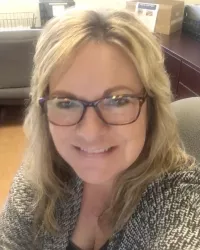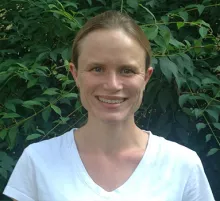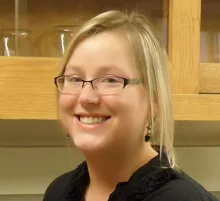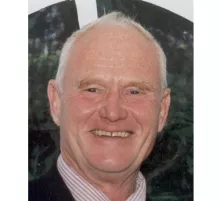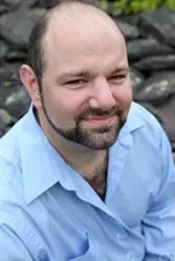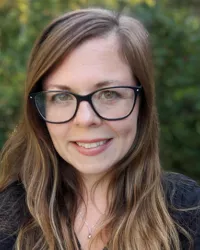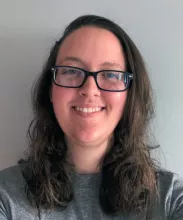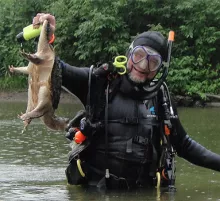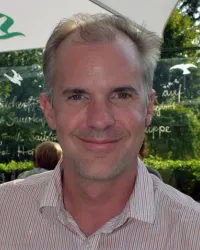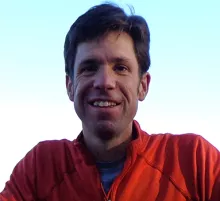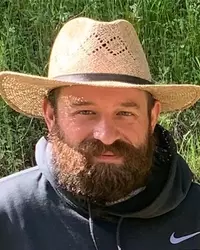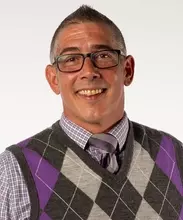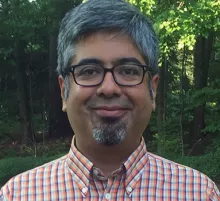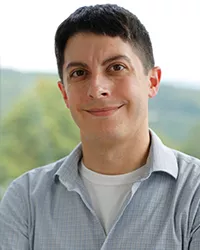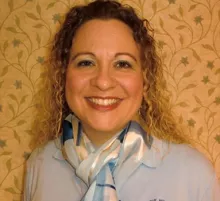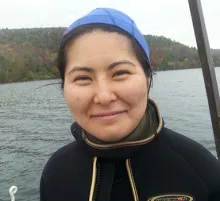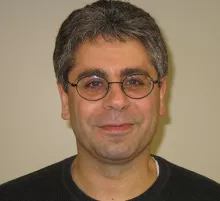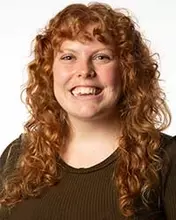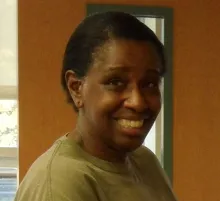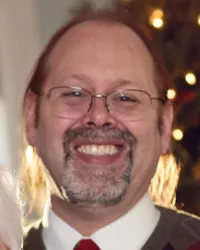Staff
Ms. Aimee Odell
Administrative Assistant
112 Perna Science Building
Phone: 607-436-3703
Email: Aimee.Odell@oneonta.edu
Teaching Faculty
Dr. Elizabeth Bastiaans
Associate Professor
113B Janet R. Perna Science Building
Phone: 607-436-3746
Email: elizabeth.bastiaans@oneonta.edu
Courses:
Biol 2002 - Genetics
Biol 2004 - Evolution
Biol 3510 - Biology of Amphibians and Reptiles
Biol 4502 - Animal Behavior
Biol 4998 - Senior Seminar
Dr. Bastiaans completed her B.A. at the University of Chicago, her Ph.D. at the University of California, Santa Cruz, and a postdoctoral fellowship at the University of Minnesota, Twin Cities. She is a behavioral ecologist primarily interested in mating behavior, life history, and the application of behavioral ecology to conservation. She joined the Oneonta faculty in 2015 and teaches classes in Evolution, Animal Behavior, and Biology of Amphibians and Reptiles. At SUNY Oneonta, Dr. Bastiaans has mentored students studying turtle conservation biology, salamander behavioral and population ecology, and beetle mating behavior. She also continues to collaborate with researchers in Mexico whom she met during her dissertation research on sexual signal variation in montane lizards.
Dr. Jill Fielhaber
Associate Professor
322 Janet R. Perna Science Building
Phone: 607-436-3723
Email: jill.fielhaber@oneonta.edu
Courses:
Biol 1001 - Investigative Biology
Biol 2000 - Cell and Molecular Biology (Lab)
Biol 2010 - Elementary Microbiology
Biol 3100 - Molecular Biology
Biol 3106 - Microbiology
Biol 3102 - Cell Biology
Biol 4900 - Biology of Cancer
Dr. Fielhaber earned a B.Sc. in Biology from Concordia University of Edmonton and a Ph.D. in Microbiology and Immunology from McGill University in 2011. She joined the Biology Department at SUNY Oneonta in 2012. Her research focuses on determining how nutrients and mitogens impact cell survival, proliferation, and death decisions, and determining the molecular mechanisms that control these choices. Her research involves using molecular techniques and in vitro mammalian cell culture. In addition, Dr. Fielhaber also mentors the SUNY Oneonta iGEM (International Genetically Engineered Machine) team. This team competes in an annual international synthetic biology competition, where the team designs, builds, and tests the function of a genetically engineered machine that addresses an important need of the students choosing and investigate the bigger picture issues that the machine is intended to address.
Dr. Willard N. Harman, CLM
SUNY Distinguished Service Professor
Biological Field Station
5838 St Hwy 80, Cooperstown, NY 13326
Phone - Main Laboratory 607-547-8778
Phone - Upland Interpretive Center 607-547-6218
Fax - 607-547-5114
Email: willard.harman@oneonta.edu
Rufus J. Thayer Chair for Otsego Lake Research
Director, Biological Field Station
No course responsibilities. Dr. Harman is Director of the SUNY Oneonta Biological Field Station, located near Cooperstown, NY and he also serves as the Rufus J. Thayer Endowed Chair for Otsego Lake Research. Dr. Harman mentors two faculty offering Biol 690 Lake Management and Biol 691, Management of the Aquatic Biota, courses he previously developed and taught.
Dr. Jeffrey Heilveil
Professor & Department Chair
115 Janet R. Perna Science Building
Phone: 607-436-3162
Email: jeffrey.heilveil@oneonta.edu
Courses:
Biol 2002 - Genetics
Biol 3504 - Entomology
Biol 3812 - Methods in Population Genetics
Biol 3714 - NY Stream Biota: ID & Ecology (summers)
Biol 3506 - Field Entomology (summers)
Biol 4500 - Aquatic Invertebrate Ecology
Biol 4700 - Stream Ecology
Biol 3802 - Advanced Biological Literacy
Biol 4700 - Experimental Stream Ecology
Graduate Seminar
After earning a B.S. in Natural resources and ecology from the University of Michigan, an M.S. and Ph.D., both in Entomology, from the University of Illinois, and serving as a postdoctoral researcher in Conservation Genetics at North Dakota State University, Dr. Heilveil joined the Oneonta faculty in 2007. He teaches undergraduate courses in Entomology, Methods in Population Genetics, Biological Literacy, Aquatic Invertebrate Ecology, Field Entomology, and NY Stream Biota: ID and Ecology, as well as various graduate courses in entomology, stream ecology, and population genetics. Dr. Heilveil is currently studying a range of questions involving life history of aquatic insects, population ecology of aquatic organisms, the impacts of urbanization on aquatic populations, and conservation genetics of aquatic species from land crabs to otters.
Dr. Miranda Kearney
Assistant Professor
318 Janet R. Perna Science Building
Phone: 607-436-3705
Email: Miranda.Kearney@oneonta.edu
Courses:
Biol 1001 - Investigative Biology
Biol 1006 - Ecological and Evolutionary Perspectives in Biology
Biol 2006 - Ecology
Dr. Kearney received her B.S. in Biology with a double major in Anthropology from the University at Albany and her Ph.D. from Binghamton University. Her research interests are broad but rooted in global change biology. As a graduate student her primary research involved assessing nitrogen dynamics in urban retention wetlands under variable hydrologic conditions to study the impact of storm-events on N pollution in watersheds. Her current research questions focus on the effects of a range of human disturbances on soil abiotic characteristics and function, plant development, and soil microbial community structure. She is also very interested in science education and regularly teaches courses using a Course-based Undergraduate Research Experience (CURE) framework. She is currently exploring whether simple classroom interventions have a measurable effect on student learning outcomes. She is also fascinated by science communication; specifically, she is interested in the ways in which art enhances the sciences and evaluating the impacts of art on public understanding and appreciation of science.
Ms. Theresa Kenney
Lecturer
122D Janet R. Perna Science Building
Phone: 607-436-3435
Email: Theresa.Kenney@oneonta.edu
Courses:
Biol 1002 - Cellular Perspectives in Biology
Biol 1004 - Organismal Perspectives in Biology
Biol 1001 - Investigative Biology
Biol 2200 & 2202 - Human & Anatomy & Physiology (Labs)
Biol 3214 - Comparative Anatomy of Vertebrates
Ms. Kenney earned a B.A. in Biology from Alfred University and a M.S. in Biology from SUNY Fredonia. Her previous research focused on the developmental changes of skeletal muscle in young mice and how cage wheel running affects this development. In addition to this, she explored how cage wheel running as a form of exercise affected senescent skeletal muscle in hopes of reducing the characteristic changes associated with aging. Ms. Kenney joined the Oneonta faculty in 2021. She teaches Comparative Anatomy of Vertebrates and laboratory sections for Human Anatomy and Physiology.
LtCol Paul H. Lord
Lecturer
122C Janet R. Perna Science Building
Phone: 607-436-2818
Email: paul.lord@oneonta.edu
Courses:
Biol 1000 - Modern Biology (Lab)
Biol 3804 - Underwater Research
Biol 3604 - Marine Biology
Biol 2006 - Ecology
Biol 3802 - Biological Literacy
Biol 3806 - Extended Research Diving
Biol 3808 - Aquatic Pollution
Biol 3702 - Limnology
Enss 1001 - Introduction to Environmental Science
Paul H. Lord is employed by SUNY to perform research on the biocontrol of Eurasian watermilfoil, to evaluate the viability of native pearly mussel populations, and to develop watershed steward programs for the Catskill Regional Invasive Species Partnership. Additionally, he instructs in aquatic pollution, underwater research, marine biology, ecology, biological literacy, and environmental sciences at SUNY-Oneonta. He holds an MS in operations research from the Naval Postgraduate School, Monterey, CA and an MA in biology from SUNY-Oneonta. He is also a retired U.S. Marine lieutenant colonel and a 35+-year SCUBA instructor.
Dr. Florian Reyda
Professor
120 Janet R. Perna Science Building
Phone: 607-436-3719
Email: florian.reyda@oneonta.edu
Courses:
Biol 1004- Organismal Perspectives in Biology
Biol 1001- Investigative Biology
Biol 3712- Tropical Biology Field course (in Peru, summers, even years)
Biol 3600- Invertebrate Zoology (falls, even years)
Biol 3602- Parasitology (falls, odd years)
Biol 4998- Senior Seminar
Having completed his B.A. at Augustana College (Illinois), his M.S. at the University of Nebraska, and his Ph.D. at the University of Connecticut, Dr. Reyda joined the Oneonta faculty in 2008. He teaches upper-level elective courses in zoology, including parasitology and invertebrate zoology, as well as a field course in Peru, Senior Seminar, and a couple introductory and graduate courses. Dr. Reyda spends half of his time conducting research with undergraduate students at the SUNY Oneonta Biological Field Station near Cooperstown, New York. He is also active in several professional societies, including the American Society of Parasitologists, and serves as an associate editor for the journal, Comparative Parasitology.
Reyda's fish parasitology research focuses on the taxonomy and systematics of parasites, with a particular emphasis on biological diversity. He and his students essentially address similar questions about evolution, diversity and host specificity of parasites using two different host-parasite systems. The first area is the freshwater fish parasites in North America. A major focus has been the fish parasites of Otsego Lake, home of the SUNY Oneonta Biological Field Station. More recent efforts have focused on a survey of Oneida Lake fish parasites in which parasitological data are being used to gain a perspective on the many changes in that lake. Reyda and his students have conducted fieldwork throughout the northeast, and also in the southern USA, where they have collected various species of thorny-headed worms (acanthocephalans). The second host-parasite system is the tapeworms (cestodes) of stingrays. Recent efforts include descriptions of new species of tapeworms from stingrays from Borneo, Senegal, and South America. Students who conduct research with Reyda gain experience with field sampling and host dissections, as well as techniques involved in modern taxonomic work, including preparation of permanent slides, light microscopy, imaging, scientific illustration, scanning electron microscopy, and DNA sequencing.
Dr. Sean Robinson
Professor
218 Janet R. Perna Science Building
Phone: 607-436-3732
Email: sean.robinson@oneonta.edu
Courses:
Biol 1006 - Ecological and Evolutionary Perspectives in Biology
Biol 1001 - Investigative Biology
Biol 4400 - Vascular Plant Systematics
Biol 3400 - Dendrology
Biol 3406 - Field Botany
Biol 4402 - Bryology
Biol 4998- Senior Seminar
Having completed his B.A. at Hartwick College, his M.S. at SUNY-ESF and his Ph.D. at the University at Albany, Dr. Robinson joined the Oneonta faculty in 2010. He teaches courses in Botany including Bryology, Vascular Plant Systematics, Dendrology, and Field Botany. He is also involved in teaching an introductory organismal biology course. Dr. Robinson’s research is focused on the phylogeography of plants, particularly bryophytes. Additionally, Dr. Robinson conducts research focused on vegetation dynamics on alpine summits.
Dr. Robinson is also the curator of the Jewel Arline Moss Settle Herbarium at SUNY-Oneonta.
Dr. Alex Sotola
Assistant Professor
323 Janet R. Perna Science Building
Phone: 607-436-3063
Email: Alex.Sotola@oneonta.edu
Courses:
Biol 2002 - Genetics
Biol 3800 - Quantitative Biology
Dr. Sotola joined the Oneonta faculty in Fall 2022 where he teaches courses in genetics, quantitative biology, and bioinformatics. Dr. Sotola earned a B.S. in Ecology at SUNY Plattsburgh, an M.S. in Biological Sciences from Eastern Illinois University, and a PhD in Aquatic Resources and Integrative Biology from Texas State University. In between schooling, he worked as a fisheries biologist at the University of Vermont and VT USGS. Dr. Sotola is broadly trained as both a population geneticist and ecologist, with a strong background in bioinformatics and statistics. His training and research has predominately been on fishes, starting with fisheries management as an undergraduate, then shifting into population genetics as a master’s student. As a doctoral student, Dr. Sotola’s research focused on ecological genetics, introgression, and phylogeography of riverine minnows. As a postdoctoral researcher at the University of Georgia, he shifted into plant evolutionary genomics, using the model system, Mimulus, to study reproductive isolation. At SUNY Oneonta, Dr. Sotola will continue to research the genetic basis and ecological drivers of reproductive isolation, test the importance of influencers to gene flow, and assess the consequences of introgression by integrating population and quantitative genetics, ecological principals along with robust bioinformatic and statistical approaches.
Dr. Daniel Stich
Associate Professor
113A Janet R. Perna Science Building
Phone: 607-436-3734
Email: daniel.stich@oneonta.edu
Courses:
Biol 1006 - BIOL II: Ecology & Evolution
Biol 3800 - Quantitative Biology
Biol 3508 - Ichthyology
Dr. Stich joined the Oneonta faculty in 2015 after earning a B.T. in fisheries and aquaculture at the State University of New York Cobleskill College of Agriculture and Technology, an M.S. in fish and wildlife conservation at the Virginia Polytechnic Institute and State University, and a PhD in wildlife ecology at the University of Maine. He previously worked with NOAA Fisheries as a contracted fishery biologist studying effects of dam passage performance standards and lake connectivity on alosines (shad and herring) in the Northeast and continues to collaborate with federal agencies on related issues. He currently teaches courses in General Biology and Lake Management. Dr. Stich uses data-driven approaches to answer questions about a wide range of species and topics that range in breadth from physiology of individual organisms to population-level responses to management actions. These approaches make use of modern quantitative and computer-based modeling techniques to address complex problems faced by both local and regional resource managers, and are extensively supplemented by field and laboratory research.
Dr. Junryo Watanabe
Assistant Professor
320A Janet R. Perna Science Building
Phone: 607-436-3754
Email: Junryo.watanabe@oneonta.edu
Courses:
Biol 2000 - Cell & Molecular Biology
Biol 3801 - Laboratory Methods in Physiology
Biol 3104 - Animal Embryonic Development
Having completed his B.A. at Reed College, Ph.D. at the SUNY at Stony Brook, Postdoctoral Fellowship at Stanford University, and Visiting Assistant Professor at Pomona College, Dr. Watanabe joined the Oneonta faculty in 2015. He will teach courses in Cell and Molecular Biology and Developmental Biology. Dr. Watanabe is interested in fundamental questions in Neuroimmunology and studies the interaction between the Nervous and the Immune systems in health and in disease. He is currently studying the role of macrophages, or white blood cells, in repairing damage to the nervous system. He utilizes the Drosophila melangastor model organism to understand injury and disease in humans such as spinal cord injuries and Multiple Sclerosis.
Benjamin Wilhelm
Assistant Professor
320B Perna Science Building
Phone: 607-436-3744
Email: Benjamin.Wilhelm@oneonta.edu
Courses:
Dr. Jennifer Withington
Associate Professor
116 Janet R. Perna Science Building
Phone: 607-436-3421
Email: jennifer.withington@oneonta.edu
Courses:
Biol 1008 - Biological & Medical Terminology
Biol 2000 - Cell & Molecular Biology (Labs)
Biol 3900 - Economic Botany
Biol 4404 - Physiology of Plants
Biol 4998 - Senior Seminar
Dr. Withington completed her B.S. in Environmental Biology and Mathematics at Heidelberg University. She went on to receive a M.S. in Biology from The University of Iowa and a Ph.D. in Ecology from The Pennsylvania State University. Dr. Withington joined the Oneonta faculty in 2011, after teaching for 3yrs at St. Andrews University. Dr. Withington teaches the introductory biology course for majors (General Biology I); she also teaches courses in Plant Physiology and Economic Botany, as well as a variety of laboratories in other introductory courses. Dr. Withington is currently working on describing the branching patterns of the fine roots of common tree species, as well as annual fine root growth patterns of trees. Current student research focuses on (1) green roof media and nitrogen-fixing plants, and (2) biochar impacts on vegetable growth in local soils.
Dr. Kiyoko Yokota
Associate Professor
114 Janet R. Perna Science Building
Phone: 607-436-3742
Email: kiyoko.yokota@oneonta.edu
Courses:
BIOL 1006 - Ecological and Evolutionary Perspectives in Biology (lecture)
BIOL 3906 & 3907 - Global Study in Conservation (on-campus component during fall semester and winter break travel component to Ogasawara Islands, Japan)
BIOL 2006 – Ecology (lecture and lab)
BIOL 3702 – Limnology (lecture and lab)
Kiyoko Yokota, Ph.D., CLM* is a limnologist (limnology = study of inland waters). Dr. Yokota graduated from Saint Cloud State University in Minnesota with B.S. in Biology with Ecology Emphasis (summa cum laude) and qualified as an Associate Professional Engineer while working for a civil engineering consultancy in Tokyo, Japan. She was responsible for environmental assessment and water quality forecasting and management projects for new and existing reservoirs, lakes, and rivers. After earning a Ph.D. in Ecology, Evolution and Behavior at the University of Minnesota - Twin Cities, Kiyoko completed a short-term postdoctoral training at Netherland Institute for Ecology (NIOO-KNAW) before she started teaching full time. Dr. Yokota’s research interests include phytoplankton dynamics, cyanobacterial blooms, aquatic food webs, biogeochemical cycling, pollutant (e.g., mercury and microplastics) dynamics, and interaction between changing climate and lakes at the local, regional and global scales. Yokota Lab members and campus collaborators participate in international team science through the Global Lake Ecological Observatory Network (GLEON.org) and collect high-frequency water quality and weather data with the Otsego Lake data buoy, acquired with an NSF grant and maintained with assistance from SUNY Oneonta, Biological Field Station Volunteer Dive Team, and Otsego Lake Association. Dr. Yokota is a New York State Safe Boating Instructor and serves as a faculty liaison with Tokyo Metropolitan University, Japan, a research and student exchange partner of SUNY Oneonta; Technical Advisor for Otsego Lake Association; and Professional Certification Program Lead for the North American Lake Management Society.
Dr. Fred Zalatan
Associate Professor
117 Janet R. Perna Science Building
Phone: 607-436-3062
Email: fred.zalatan@oneonta.edu
Courses:
Biol 1002 - Cellular Perspectives in Biology
Biol 2010 - Elementary Microbiology
Biol 3100 - Molecular Biology
Biol 3106 - Microbiology
Biol 3102 - Cell Biology
Biol 4998 - Senior Seminar
Dr. Zalatan joined the faculty in 2003. He received his Ph.D. at the University of Rochester, and did his undergraduate studies at Hamilton College. He teaches courses in Molecular Biology, Cell Biology, and Microbiology. His research interests mostly involve factors that affect the function of the Ty1 transposable element (a "jumping gene") in baker's yeast. Experiments utilize molecular, cellular, and genetic techniques. He collaborates on this research with colleagues at the Wadsworth Center in Albany.
Dr. Bay Vagher
Lecturer
122 Janet R. Perna Science Building
Phone: 607-436-3741
Email: Bay.Vagher@oneonta.edu
Courses:
Biol 3202 - Human & Anatomy & Physiology (Labs)
Dr. Vagher earned her B.S. in Biology with a concentration in Cellular & Molecular Biology from Fort Lewis College in her home state of Colorado. She earned her Ph.D. in Cellular, Molecular, and Biomedical Sciences at the University of Vermont. Her research interests include investigating questions within her subfield of immunometabolism and more broadly how research can be integrated into laboratory-based courses to offer students hands-on opportunities to learn important biological concepts. Her previous research and doctoral dissertation focused on the regulation of dendritic cell metabolism and cellular respiration via nitric oxide. In addition to this, she has an extensive background in cancer biology research, laboratory-based course design, and inclusive teaching practices. Dr. Vagher joined the Oneonta faculty in 2024. She currently teaches laboratory sections for Human Anatomy and Physiology.
Non-Teaching Faculty
Ms. Sandy Knoll
Laboratory Technician
122A Janet R. Perna Science Building
Phone: 607-436-3703
Email: sandra.knoll@oneonta.edu
Sandy Knoll has been with the Biology Dept. for twelve years as the Laboratory Technician. Sandy coordinates laboratory materials for a variety of classes, including General Biology, I, II and II, Modern Biology and Microbiology. This includes, but is not limited to, preparing microbiology media and solutions, and ensuring that glassware is prepped and ready to be used.
Mr. RP Withington
Biology Lab Coordinator
122E Janet R. Perna Science Building
Phone: 607-436-3899
Email: rp.withington@oneonta.edu
Having completed his B.A. (English) at Hamilton College and his M.S. (Entomology) at the Pennsylvania State University, Mr. Withington joined the Biology Department in 2011 as an adjunct instructor and was hired as the Biology Lab Coordinator in 2014.
